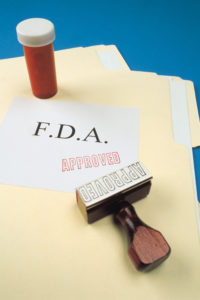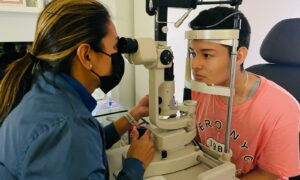May 1, 2020
By Gary Gerber, OD
 As of the writing of this article, only one product, MiSight 1 day contact lens from CooperVision, is FDA approved for slowing the progression of myopia in children. This is long-awaited great news for eye care practitioners, as it adds to the science and credibility of myopia management, especially when talking to parents.
As of the writing of this article, only one product, MiSight 1 day contact lens from CooperVision, is FDA approved for slowing the progression of myopia in children. This is long-awaited great news for eye care practitioners, as it adds to the science and credibility of myopia management, especially when talking to parents.
Of course, other means of treating childhood myopia (different soft multifocal contact lenses, topical low-dose atropine, orthokeratology lenses, and eyeglasses) are available but not yet FDA approved. How exactly does this impact your myopia management practice, if at all?
“Off label” refers to using a product that is FDA approved for a particular indication for some other medical purpose. An example that commonly occurs within optometry is using a topical antibiotic eyedrop that is approved for bacterial conjunctivitis for a corneal infection or vice versa. This is, of course, commonly done in optometry as well as other medical disciplines. Relative to childhood myopia, pediatricians routinely prescribe approved “adult medicine” off label for children.
An example closer to home, but a little more confusing, would be using an RGP lens that is FDA approved for orthokeratology (ortho-k) for myopia management. This, of course, means you clearly understand that ortho-k does not equate to myopia management. The various ortho-k lenses that have received FDA approval were approved for providing uncorrected daytime vision– not for slowing the progression of myopia.
So, given most currently prescribed myopia management treatments are being used off label, what do you need to do?
First, I will tell you what you should not do. Do not get stuck on the terminology, and do not avoid myopia management because of it. Instead, using an off-label device is legal and legitimate, and the FDA leaves the decision to do so up to the practitioner. So in this case, if you believe a particular drug like atropine (FDA approved, but not for myopia management) will benefit your patient, you should use it. If you believe an FDA approved (for presbyopia) contact lens will benefit your patient, you should use it. Prescribing off label is not a reason to avoid carefully explained, evidence-based myopia management care.
Next, regarding documentation, keep in mind, as mentioned above, odds are you are already prescribing, and have been for a while, off-label drugs. If you are like most practitioners, you are probably not documenting that you are using them off label. I am not advocating you continue not to document their use, just stating what is perhaps already happening.
In the case of myopia management, it is advised to have documentation signed by the parent that you are using an off-label drug or device as part of your treatment. A few sentences inside of your informed consent agreement should likely suffice. Explain in parent/consumer-friendly wording what the concept of off label means, and let the parent know that you are recommending it for their child’s planned treatment.
Off-label use is something you should inform the parents of your myopia management patients about, but do not blow it so far out of proportion that it prohibits you or parents from moving forward. And of course, as part of your informed consent, you need to balance the risks of using an off-label treatment with the eye health consequences of no treatment at all.
 Gary Gerber, OD, is the co-founder of Treehouse Eyes.
Gary Gerber, OD, is the co-founder of Treehouse Eyes.











